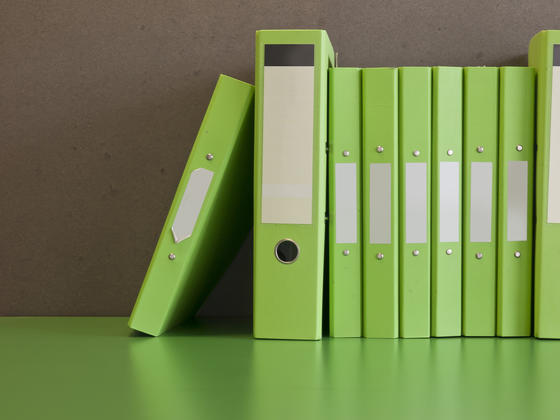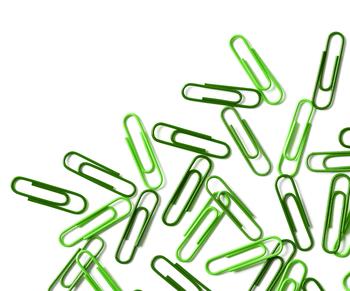They say one person’s trash is another person’s treasure. On a college campus, that treasure could be a stack of three-ring binders or sticky notes collecting dust in the office supply closet.

Someone else might need those supplies—and need them urgently. Jessica Adams, assistant director of knowledge management for fiscal learning and engagement at George Mason University, remembers when a former colleague approached her with a last-minute purchasing crisis. The department was hosting a conference and organizers realized the day before that they needed additional supplies.
The commonwealth’s supply vendor policies are not always conducive to last-minute purchases, according to Adams. “I offered what advice I could from my place in Fiscal Services and asked if she checked with other offices to see what supplies they had available,” Adams said.
This last-minute request sparked an idea that had been on Adams’ mind for quite some time: Mason needed an office supply exchange, where departments could quickly and easily seek out or repurpose extra or unused supplies.
Adams shared the idea with her colleagues on the Staff Senate, and it took off from there. The Office Supply Swap launched on Microsoft Teams in Spring 2023, thanks to the efforts of the senate and University Sustainability.
April Lopez, part of the Staff Senate’s Environmental Justice and Sustainability Committee, took the lead in creating the online community. Lopez has worked as an administrative assistant at Mason since 2019 in the Division of Special Education and disAbility Research in the College of Education and Human Development.

The supply swap channel is open to all Mason faculty and staff and sits within the larger Greener Mason Community on Teams, which covers a range of sustainability topics at Mason: recycling, plastics reduction, living landscape, and even environment and climate-related reading and listening recommendations. The group offers a place for the Mason Nation to connect and learn.
The rules for the Office Supply Swap are simple: faculty and staff post unneeded items on the Teams channel. If another department needs the items, they can comment and arrange pickup. If someone needs an item, they can ask if anyone has a surplus. All items must remain university property—personal items and personal use of items are not allowed. Technology and furniture items should not be offered in the swap; they should go through existing surplus procedures.
The supply exchange echoes one of Mason’s core values: We are careful stewards.
“There are financial savings in not buying new when there are things already at the university that can be reused,” Lopez said. Repurposing and reallocating supplies also supports Mason’s zero waste goals.
Lopez hopes that the project helps people recognize that small actions support sustainability at Mason.
“I hope that the Office Supply Swap helps us recognize the abundance we already have, even if we’re just talking about paperclips, three-ring binders, and suspension files,” Lopez said. “In our cabinets and desk drawers, we already have items that the university could use for years to come.”
Read More Like This
- April 30, 2024
- April 26, 2024
- April 22, 2024
- April 19, 2024
- April 18, 2024
